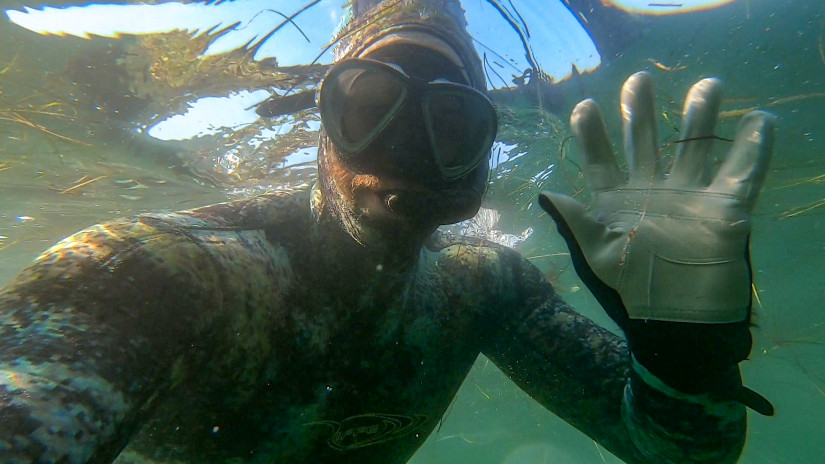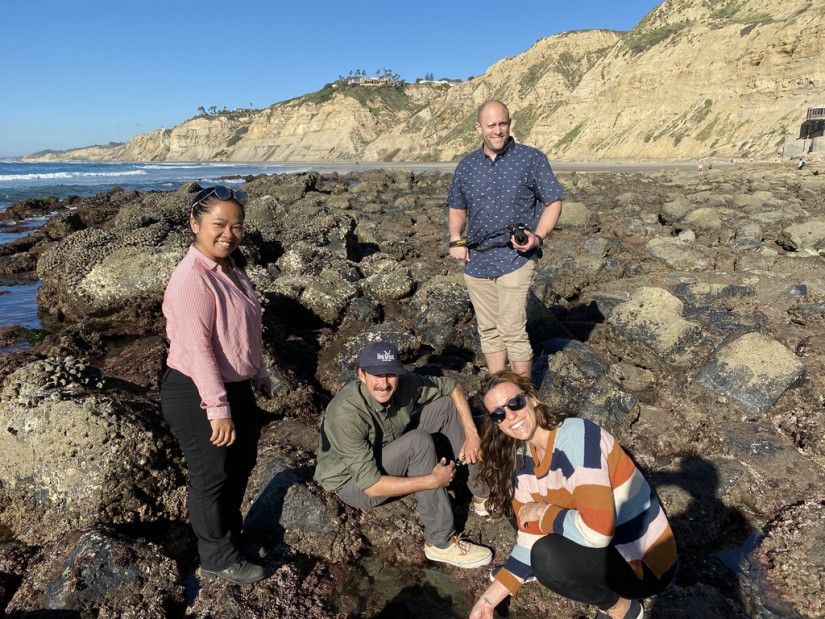
And then a once-in-a-century pandemic sweeps the world. Nothing could have prepared you for this moment, when your one year to work, gain experience, and build connections gets broadsided by a virus that swept indiscriminately across the globe.
See, I got my chance at the fellowship. And it started off with bright enthusiasm. But then the reality of Covid-19 sent me all too quickly from my oceanview office to the couch I know too well. The days turned into weeks. Then months. And the virus did not abate. My opportunity to network and get out in this field seemed to wane further every single day I was trapped working from home. No matter how strong my will, this weighed on me.
Prior to setting sail as a newly-fledged science communicator, I had been a mental health counselor. You’d think, of all people, I should be the one perfectly adapted to manage this kind of thing, right? But that’s not quite how mental health works. None of us is ever immune.
And it’s really gotten me thinking again about how important mental health is for those of us in communications fields:

First, we are highly exposed to significant strains on our own mental wellbeing. We spend a lot of time poring over news outlets and journals. Much of which—especially these days—seems increasingly negative. We spend a lot of time staring at screens, sifting through dense academic journals, and getting critiques on our writing. It can be a heavy psychological burden.
And secondly, we are quite capable of influencing those to whom we communicate. Our words and our stories matter. Social contagion is very real. Our own feelings and judgments come through in our language and our way of being, and can be passed to others...just like a virus.
As communicators, we can be superspreaders of our verbal contagion. We are reaching to broad audiences, and we risk spreading that very infection to those we seek to inform.
Our words are more important now than ever. Climate depression is a noteworthy phenomenon—as many as 200 million Americans could experience serious psychological distress from climate change-related events. Compassion fatigue and burnout are documented experiences affecting many who work in conservation and marine science. Now we throw in a global pandemic and fights for social justice and racial equality, it’s very easy to tip people over the edge.
As a science communicator, my goal is not just to spread knowledge about marine science. I also want to inspire people to take action. To keep people informed and motivated, we need to be at our best—mentally and emotionally—to craft the best messages of hope and action.
So, from a former-mental-health-professional-turned-SciCommer, here’s my (non-exhaustive) list of suggestions to take care of yourself during COVID life:
Take Action - It’s easy for the anxiety to build when you feel like nothing is getting done. It can be paralyzing. So do something. No matter how small. Check off one little thing from your to-do list. Often, that first step will give you the motivation you need to take the next. Which builds into the next.

Get Outside - Working from home is great in many ways. I don’t have to deal with commutes or parking or traffic jams. But now I often forget to get outside. I’m less conscious of taking breaks. Fresh air and sunlight can do us a lot of good, for a number of different reasons. And there has long been evidence that vitamin D deficiency may be linked to depression and other mental health issues.
Move More - Working from home means we’re probably all getting less active time. Where I would normally be walking from parking lot to office to coffee cart to swim break to meetings back to car...I walk from my bed to my living room each day. Workout motivation can often be lacking. But physical activity, even in small amounts, helps release the brain’s happy juice. So make a little time to move more, in whatever way you enjoy.
Enjoy Your Field - My focus is marine conservation. It’s easy to get caught up in the doom-and-gloom of climate change, sea-level rise, pollution, and so on. But you know what never gets old? Spending time in the ocean. I got into this field because of my love for the deep blue. And it’s always refreshing to reconnect to that. Make time to get out and enjoy the field you study. Rediscover why it brought you excitement and joy.
Unplug - Admit it, you’ve been doom scrolling too much. Especially those of us in communications-related fields, patrolling the breaking news during our workdays, and then surfing through our news feeds during our time off. Find time away from the screens. Use apps to limit your social media time. Go places where there’s no wifi.
Talk About It - That doesn’t just mean therapy. Talk about how you’re feeling with friends and family. I’ve noticed, a lot of the things that feel difficult and shameful right now aren’t just me things. And while it doesn’t make problems go away, there is some comfort in knowing we’re all in this together.
Go Easy on Yourself - This is an unprecedented time. For all of us. We’re going to eat more junk food than we should, skip workouts, and get too much screen time. More than anything else on this list, go easy on yourself. If there’s one thing I learned in my time working in mental health, it’s this: people do the best they can. None of us can be expected to operate at 100% capacity during a global pandemic. You’re doing the best you can. Give yourself the same compassion you would to anyone else.
